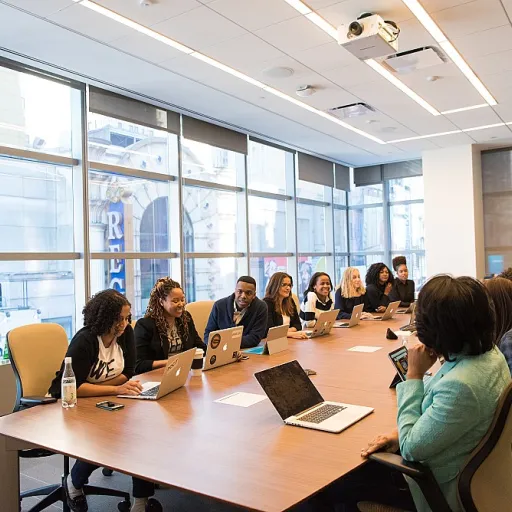
Legal landscape in Washington and its influence on corporate behavior
Washington’s Labor Laws: Setting the Tone for Corporate Culture
Washington state has some of the most detailed labor laws in the United States, especially when it comes to meal breaks, rest periods, and overtime. These regulations are not just legal checkboxes—they shape how employers and employees interact, and they influence the broader corporate culture in every organization operating within the state. Employers in Washington are required to provide specific meal and rest breaks depending on the hours worked. For example, employees who work more than five consecutive hours must receive a 30-minute meal period. Additionally, for every four hours worked, a paid rest break of at least 10 minutes is mandated. These break requirements are designed to protect employee well-being and ensure fair labor practices.- Meal breaks: Unpaid, 30-minute minimum for shifts over five hours
- Rest breaks: Paid, 10-minute minimum for every four hours worked
- Overtime: Required for hours worked over 40 in a workweek
How breaking laws affects employee morale and trust
Employee morale and trust in the wake of legal violations
When employers in Washington state break labor laws—especially those related to meal breaks, rest periods, and overtime—employees often feel the effects immediately. The state has clear break requirements, such as a 30-minute meal period for shifts over five hours and paid rest breaks for every four hours worked. When these rules are ignored, it sends a message to employees that their well-being and legal rights are not a priority.How law violations affect the workplace:
- Reduced trust: Employees may question whether their employer values fairness and transparency. This can erode trust, making it harder for teams to collaborate and communicate openly.
- Lower morale: When workers are denied their meal or rest breaks, or not paid for overtime, it can lead to frustration and disengagement. Over time, this impacts productivity and increases turnover.
- Increased stress: Skipping required breaks or working beyond scheduled hours without proper compensation can lead to burnout, affecting both mental and physical health.
- Perceived lack of respect: Employees may feel undervalued if their time and legal rights are not respected, which can damage the overall corporate culture.
Why compliance matters for culture Respecting Washington labor laws around meal breaks, rest periods, and overtime is more than just a legal obligation. It’s a sign of respect for employees’ time and well-being. When employers prioritize compliance, they show that they care about their workforce, which helps build a positive, ethical culture.
For a deeper look at how board-level policies influence these dynamics, see this analysis on the impact of board policy on corporate culture.
Key takeaways for employers:
- Honor all break requirements, including meal periods and paid rest breaks, as outlined in Washington state law.
- Track work hours accurately to ensure compliance with overtime and break laws.
- Recognize that even small violations can have a big impact on employee trust and morale.
Leadership response to legal challenges
Leadership accountability in the face of legal breaches
When an employer in Washington state is found breaking labor laws, especially those related to meal breaks, rest periods, or overtime, the spotlight quickly turns to leadership. How leaders respond to these legal challenges can set the tone for the entire organization. Leaders are expected to act swiftly and transparently. If employees discover that their meal or rest breaks have been denied or that hours worked are not accurately tracked, trust in management can erode rapidly. Employees may begin to question whether their well-being is truly valued, or if the employer is simply focused on minimizing paid break hours and maximizing productivity, regardless of state law.- Communication is key: Leaders who openly address legal incidents, explain the steps being taken to correct break requirements, and acknowledge the impact on employees tend to rebuild trust more effectively.
- Policy review and adaptation: After a breach, responsible employers often review their time tracking systems and meal period policies to ensure compliance with Washington break laws. This includes clarifying the difference between paid rest breaks and unpaid meal periods, and making sure all employees understand their rights under state labor laws.
- Visible commitment to change: Leadership must demonstrate a real commitment to following labor laws, not just in words but in actions. This could mean investing in better scheduling tools, providing training on break hours, or even hiring compliance officers to monitor adherence to state requirements.
Compliance strategies and their effectiveness
Approaches to Ensuring Compliance with Labor Laws
Employers in Washington state face strict requirements regarding meal breaks, rest breaks, and hours worked. The state’s labor laws mandate specific break periods, including a 30-minute meal period for shifts over five hours and paid rest breaks for every four hours worked. Failing to comply with these break requirements can result in legal consequences and damage to corporate culture. To address these challenges, organizations use a variety of compliance strategies:- Clear Policies and Training: Employers often develop detailed policies outlining meal and rest break requirements. Regular training ensures employees and managers understand Washington break laws and their responsibilities.
- Time Tracking Systems: Accurate time tracking is essential. Many employers implement digital systems to monitor hours worked, meal periods, and rest breaks. This helps ensure compliance with state Washington labor laws and provides documentation in case of disputes.
- Regular Audits: Conducting periodic audits of time records and break hours can identify gaps in compliance. Audits also demonstrate a commitment to following labor laws and protecting employee rights.
- Open Communication Channels: Encouraging employees to report missed meal breaks or rest periods without fear of retaliation builds trust and helps address issues before they escalate.
Evaluating the Effectiveness of Compliance Efforts
The effectiveness of these strategies depends on consistent enforcement and a genuine commitment from leadership. When employers prioritize compliance with meal and rest break laws, employees feel valued and respected. This can improve morale, reduce turnover, and foster a positive work environment. However, simply having policies on paper is not enough. Real-world effectiveness comes from:- Ensuring all employees receive their required meal breaks and paid rest periods
- Responding promptly to concerns about missed breaks or overtime
- Adjusting practices based on feedback and audit results
Cultural shifts after legal incidents
Visible and Subtle Shifts in Workplace Dynamics
When an employer in Washington state breaks labor laws—especially around meal breaks, rest breaks, or overtime—there are often immediate and long-term changes in the company’s culture. Employees notice when their rights to a meal period or paid rest are ignored. This can lead to a shift in how employees view their employer and the overall work environment.- Increased skepticism: Workers may become more cautious about trusting management, especially if break requirements or hours worked are not respected.
- Open conversations: Discussions about labor laws, break hours, and time tracking become more frequent among staff, sometimes leading to collective action or union interest.
- Policy reviews: Employers often revisit their meal and rest break policies, sometimes prompted by legal action or state investigations.
Changes in Management and Employee Relationships
After a legal incident involving break laws or overtime, the relationship between employees and leadership can change. Employees may demand clearer communication about their rights to meal breaks, rest periods, and overtime pay. Employers, in turn, might implement more transparent systems for tracking hours worked and ensuring compliance with Washington labor laws.- Managers may receive new training on state Washington break requirements.
- Employees could be encouraged to report missed meal or rest breaks without fear of retaliation.
Adapting Workflows and Schedules
Companies often adjust their workflows to comply with break requirements. This can mean restructuring shifts to guarantee every employee receives their required meal period and paid rest breaks. Time tracking systems may be upgraded to ensure accurate records of hours worked and break periods.| Before Legal Incident | After Legal Incident |
|---|---|
| Inconsistent meal/rest breaks | Strict adherence to meal/rest break laws |
| Minimal time tracking | Robust time tracking and reporting |
| Limited employee input | Regular feedback on break policies |
Long-Term Cultural Evolution
Over time, companies that experience legal challenges related to meal breaks, rest breaks, or overtime often see a more compliance-focused culture. Employees become more aware of their rights under Washington labor laws, and employers prioritize transparency and fairness. This evolution can help rebuild trust and foster a more positive, ethical workplace. For more on labor law compliance and its impact on corporate culture, consult resources from the Washington State Department of Labor & Industries (https://www.lni.wa.gov/).Lessons learned and best practices for fostering ethical cultures
Building a Culture of Accountability and Respect
Organizations in Washington that have faced legal challenges related to meal and rest break laws often emerge with valuable insights. These lessons are crucial for employers aiming to foster ethical, compliant, and positive work environments.- Clear Communication: After incidents involving break laws, companies realize the importance of transparent communication about meal periods, rest breaks, and work hours. Employees need to understand their rights under state labor laws, including the specifics of paid rest breaks and meal periods.
- Consistent Time Tracking: Accurate time tracking is essential. Employers who implement reliable systems for monitoring hours worked, break hours, and overtime reduce the risk of non-compliance. This also reassures employees that their time is respected and compensated appropriately.
- Regular Training: Ongoing education for both management and staff about Washington state labor laws helps prevent misunderstandings. Training sessions should cover break requirements, meal rest periods, and the consequences of violating break laws.
- Leadership Example: When leadership demonstrates respect for meal and rest breaks, it sets a standard for the entire organization. Employees are more likely to take their entitled breaks when they see management doing the same.
- Feedback Mechanisms: Establishing channels for employees to report concerns about meal breaks, rest periods, or overtime without fear of retaliation encourages a culture of trust and accountability.
Best Practices for Ethical Corporate Culture
| Best Practice | Impact on Culture |
|---|---|
| Documented Break Policies | Reduces confusion and supports compliance with Washington break laws |
| Audits and Self-Assessments | Identifies gaps in break requirements and ensures ongoing improvement |
| Employee Empowerment | Encourages employees to take their meal and rest breaks, improving morale |
| Responsive HR Support | Addresses concerns about hours worked, overtime, and meal periods promptly |
| Celebrating Compliance | Reinforces positive behavior and commitment to state Washington labor laws |












